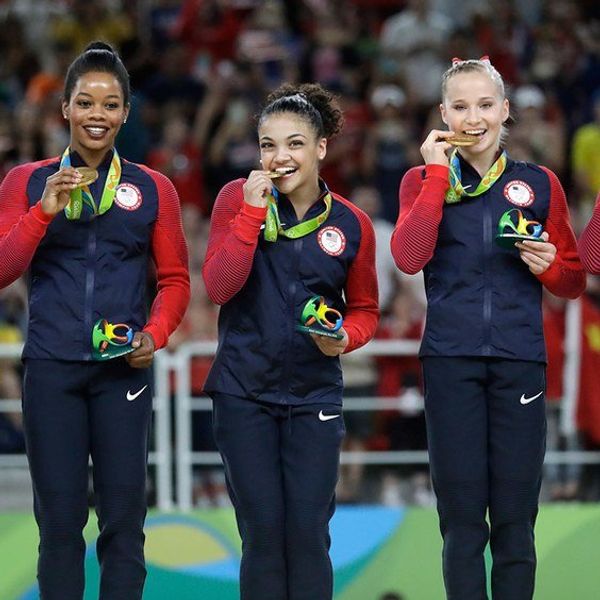Think of the biggest sport at your school. Think of the team that is promoted the most or gets the most attention, the team whose players are the most popular around campus, the team with the best record, or the team with the grandest budget.
Maybe one team encompasses all of these traits, but how many of you thought of a women's team? The answer is most likely very few, if any.
At my school, Northern Michigan University, the team that deserves the most attention is getting close to none. It's the women's club hockey team.
They have a 15-2 record. Last season, they competed in a national tournament. And how much press do they receive? With the exception of a local news station, there isn't much. They receive hardly any benefits from the university, yet they have better records than the men's varsity hockey team or the football team, who's programs receive a good chunk of change from the university every season.
According to Title IX, universities do not have to spend the same amount of money on men's and women's athletic teams unless they are the same sport. For example, the football team and the women's soccer team will not have equal budgets, but both the men's and women's hockey teams should be receiving equal amounts of aid if the equipment is the same.
However, equal spending is not the issue. The issue isn't something that Title IX can fix. This is something within every single spectator.
Why are we more likely to attend a men's sporting event than a women's? Why when we think about sports do we generally think male?
We could blame society. We could blame the world of sports for filling our heads with mostly male, egocentric maniacs who can run/skate/swim fast or throw/shoot a ball/puck only for them to retire and be known for the "good ol' days" or their "great golf swing."
It's not like there isn't talent in women's sports and I'm not saying that all professional athletes are stereotypically shallow. It's the fact that women's sports simply are not receiving enough attention.
They train just as hard as males — sometimes even harder just for the chance to prove themselves. The majority of the time, when a woman competes in a male-dominated sport it's sold on the fact that people love sex and women in outfits that leave little to the imagination.
Yet women's sports have to sit on the back burner, not only in professional sports but college sports as well. Let's think about basketball. I've heard many sports fans in my life talk about how the WNBA is a "joke" or a "waste of money," but the players had to get there somehow, right?
In the college world, sure there is a national women's basketball tournament, but does it receive nearly the amount of viewers or press as March Madness? I didn't think so.
There is a similar problem, however, in female-dominated sports. Take men's figure skating for example. There are not nearly as many male figure skaters that have the dream of going to the Olympics as there are female figure skaters. I've even heard people describe men's figure skating as "weird."
Men can do quadruple jumps. Yes, they rotate four times in the air. In fact, if you go to the Olympics, it is expected. There are few women who can land quads.
There is an issue of audience. More men do watch sports, but we shouldn't discount the women who do. I would watch sports. It isn't my first instinct to tune into ESPN when I turn on the TV, but I will sit through and understand the majority of the game or talk show. However, because men are the target audience, everything on ESPN is marketed towards men.
I want to be clear that I do not think that people, especially men, should be shamed for liking sports. I just wish there was more of an emphasis on women's sports: more television time, more marketing, more opportunities for women in the sports world. I've been seeing more and more women on ESPN and that's a good thing. They are holding their own and showing the world that women can be more than just a pretty face in the world of sports.
I want a world where any little boy or girl can dream of being a professional athlete and be taken seriously.
I think it's time we start judging athletes based on their skill and not for their body parts.





















